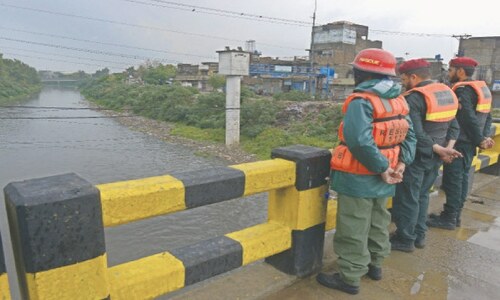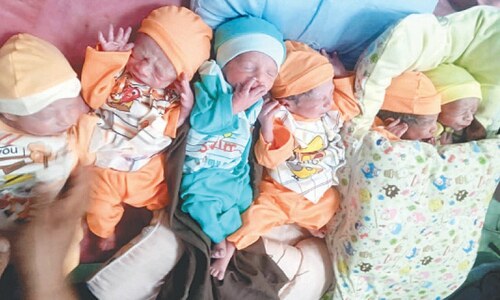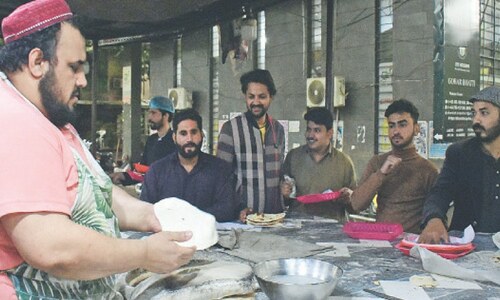ISLAMABAD, Jan 30: Announcing the results of a survey held in Khyber Pakhtunkhwa and Punjab, researchers discussed the link between the problems faced by women and the failures of national systems.
The survey, conducted by the Sustainable Development Policy Institute (SDPI), covered six districts in the two provinces and researchers interviewed 4,500 women and 300 men.
On Wednesday, Dr Asif Saeed Memon, monitoring and evaluation specialist at SDPI, provided an overview of its findings at an Islamabad hotel, beginning with the issue of gender-based violence.
He said a large proportion of men in both provinces believed that there were situations in which it was necessary to use physical violence against women, and that banning that violence was a “Western concept”.
If many of the men surveyed found violence against women socially and culturally acceptable, women had few alternatives.
The survey showed that despite their concerns, women avoided seeking help from the police or the courts, whether that was to avoid a breakdown in family relations, especially given their dependent status, or because of a lack of support.
“Both men and women prefer jirgas to courts — most of the males thought that women should not go to court at all. If a woman does go to court, her husband will interpret it as a sign of divorce,” Dr Memon said.
He explained that in general, people avoided the formal justice system because “it has so many technicalities, high costs, and delays. There is also the potential for public embarrassment, given the attitudes of police officials. The police themselves frequently suggest that domestic issues should be resolved through local arbitration.”
Violence was not the only problem women faced. Fayyaz Yasin, a researcher at SDPI, mentioned health issues as well.
Based on the same survey, he estimated that only 50 per cent of women in Punjab had access to doctors during childbirth.
Even more women, 65 per cent, were unable to purchase medicine during their pregnancies.
“In Khyber-Pakhtunkhwa, on the other hand, 75 per cent of women get medical service from doctors when delivering their children. However, 45 per cent of these women were unsatisfied with the services the health department provides.”
Mr Yasin mentioned water as another problem linked to both individual health and larger issues.
“Chronic water-borne diseases have affected 12 per cent of our respondents in Punjab,” he said, “but only one per cent of people boil their water before drinking it. Nearly 93 per cent of our respondents obtain their drinking water privately, rather than using municipal services.”
Dr Shaukat Farooq, an environmental engineer, wondered why common people, particularly women, were still facing the problems of 1947’.
“Addressing the issues of the masses is not a priority for our rulers,” he said, adding that some of these problems, such as water contamination, have only become more complicated over the past decades.
ANP Senator Haji Mohammad Adeel agreed that women in rural areas in Pakistan face many immense challenges, but argued that politicians should not be held solely responsible for failing to address them.
“The fact is that our whole system has become corrupt, and there is nothing we can do to stop it,” he said.
“There is corruption in the education sector, the health sector — even the courts.”
Although it is easy to blame politicians for corruption and other problems, social activist Haris Khaliq said, “all those issues will eventually be resolved if we continue with the democratic politic system.”
Nafeesa Khatak, President of the PTI’s women’s wing in Islamabad, offered her party’s strategy to address individual’s issues, state institutions, and complaints against politicians.
“If the PTI forms the government, we have decided to strengthen the jirga system. If a jirga fails to resolve an issue within three days, then an FIR will be registered.”
SDPI’s survey itself suggested a ray of hope to others in the audience.














































Dear visitor, the comments section is undergoing an overhaul and will return soon.